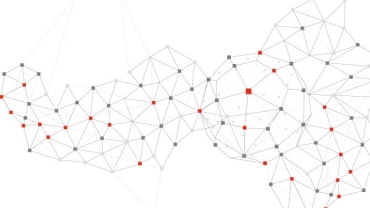
Dutch Cabinet: monitoring combating tax avoidance; Tax treaty policy memorandum
05/06/20
Combating tax avoidance is one of the Dutch Government's policy priorities. In a letter to the House of Representatives of 29 May 2020, the Cabinet describes how it wants to monitor the effects of combating tax avoidance. Also on 29 May 2020, the Cabinet published the 2020 Tax Treaty Policy Memorandum. This memorandum describes the Dutch policy regarding the conclusion of double tax treaties.

What does this possibly mean for your company?
Monitoring the combating of tax avoidance will not have immediate consequences for you, also because the first results of the monitoring are expected at the earliest in 2024. Of course it is possible that the outcome of this monitoring could result in a different or a sharper approach to tax avoidance by then.
The various policy positions from the 2020 Tax Treaty Policy Memorandum may have consequences for you when these policy positions are put into practice in (new or revised) tax treaties that the Netherlands concludes with other countries.
Monitoring the effects of combating tax avoidance
Combating tax avoidance is one of the Dutch Government's policy priorities. During this Cabinet period, the Cabinet has taken various measures to combat tax avoidance. Examples of such measures are:
- The introduction of a generic interest deduction limitation (earnings stripping rule) and the additional Controlled Foreign Companies (CFC) rule as part of the implementation of the ATAD1 Directive;
- Measures against hybrid mismatches as part of the implementation of the ATAD2 Directive;
- Approval of the Multilateral Tax Treaty (MLI); and
- Introduction (as of 2021) of a conditional withholding tax on interest and royalty payments to low-tax jurisdictions and in abuse situations.
The Dutch Government considers it important to identify as well as possible whether these measures are effective. Partly in response to questions and motions from the House of Representatives, the State Secretary of Finance states in his letter how he intends to monitor the effects of combating tax avoidance in a targeted manner.
In doing so, he acknowledges that for various reasons there is no general, manageable and all-encompassing definition of tax avoidance to monitor the effect of the cabinet's approach.
In order to monitor the effects of the introduction of a generic interest deduction restriction (earnings stripping rule), research will be conducted into the effects to the ratio between debt and equity of companies in the Netherlands. The Government expects the introduction of the CFC rule to have primarily a behavioral effect.
The effects of ATAD2 and the MLI on hybrid mismatches are difficult to measure. Research will mainly focus on the CV / BV structure, being the hybrid structure most relevant to the Netherlands.
To monitor the effects of the introduction (as of 2021) of a conditional withholding tax on interest and royalty payments to low-tax jurisdictions and in abuse situations, the Dutch Central Banks data on financial flows through financial institutions through the Netherlands will be used. This data may also show the extent to which financial flows are transferred to other jurisdictions.
Finally, it is important to note that in the course of this year, the research will be completed into the question whether an adjustment of the arm's length principle is necessary in connection with the discussion on the so-called informal capital doctrine.
2020 Tax Treaty Policy Memorandum
Tax treaties aim to promote economic relations between countries by avoiding double taxation. The conclusion of tax treaties thus supports an attractive business environment. On the other hand, tax treaties can create opportunities for tax avoidance. As already noted, tackling tax avoidance is one of the Government's policy priorities. Combating the abuse of tax treaties is an important part of this. To this end, the Netherlands is using the solutions provided by the OECD BEPS project and the MLI, such as the inclusion of anti-abuse provisions in tax treaties.
With regard to the relationship between bilateral tax treaties and EU law, the Government notes that bilateral tax treaties can hinder the application of legislation implementing ATAD1 and ATAD2 Directives. The Netherlands will therefore ensure that implementing obligations under EU Directives would remain possible or would become possible by concluding a new or amending an existing tax treaty.
Regarding the design of its tax treaties, the Netherlands follows the OECD Model Convention as much as possible.
On the other hand, in relation to developing countries, the Netherlands will apply the UN Model Convention more often than before. According to the Government, the OECD Model Convention is more effective in preventing double taxation than the UN Model Convention. The later model, however, takes greater account of the desire of many developing countries to grant more taxing rights to source countries than the OECD model. Nevertheless, the Dutch tax treaty policy also deviates from the OECD Model Convention on a number of points, such as the taxation of pensions or the taxation of income from substantial interest shares.
The 2020 Tax Treaty Policy Memorandum also indicates that the currently existing option to apply (in derogation from the tax treaties) the exemption method instead of the credit method for directors' and supervisory directors' remuneration, is to be withdrawn.
Finally, the 2020 Tax Treaty Policy Memorandum focuses on Dutch tax treaties with specific groups of countries such as the neighboring countries Belgium and Germany, developing countries, and non-cooperative and low-tax countries.
Contact us



















